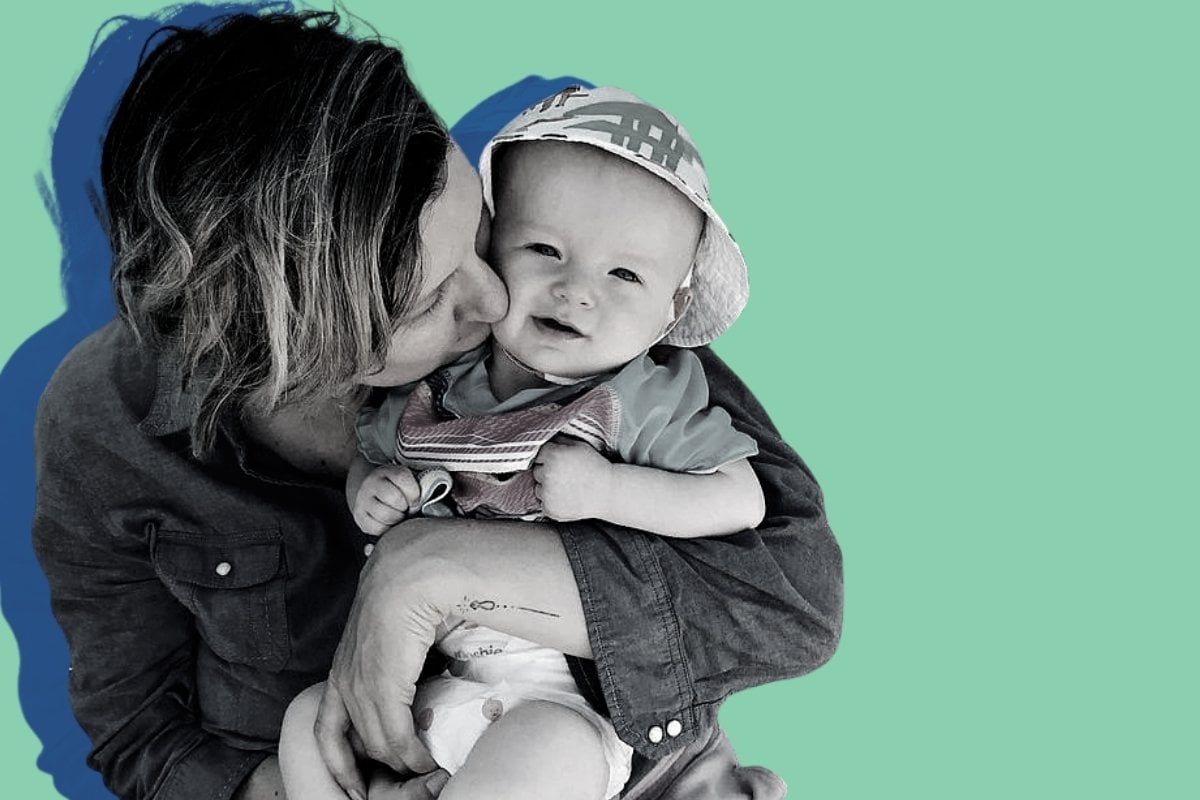
'Selfish' is a word Alexandra Collier has heard often about women like her; those who choose to become a parent without a partner.
It was late 2016 and Alexandra, who was living in New York at the time, dialled her parents back home in Melbourne. Through tears of heartbreak and fury, she told her mother that her five-year relationship was over and that, at 37 years old, she'd have to start a family by herself.
"Women who have babies on their own," her mother responded, "are only thinking about themselves and not the child."
Alexandra snapped back. "So, you chose to have me out of altruism?"
Watch: Meshel Laurie on going through IVF alone.
Alexandra now has a baby boy conceived via donor sperm, and is one among a growing number of Australian women who've become 'solo mothers by choice'.
Speaking to Mamamia's No Filter podcast, she noted that her desire to have children was no different to any other hopeful parent.
"People don't go into parenthood, even in marriages, with a kind of noble idea in mind of, like, 'I'm going to bequest a life upon a future being,'" she said. "I think it's just this thing that we do, it sort of unfolds."
For solo women, it just does so in a slightly different pattern.
Solo mothers by choice.
There aren't any official stats that track just how many women chose to become solo mothers in Australia.


Top Comments